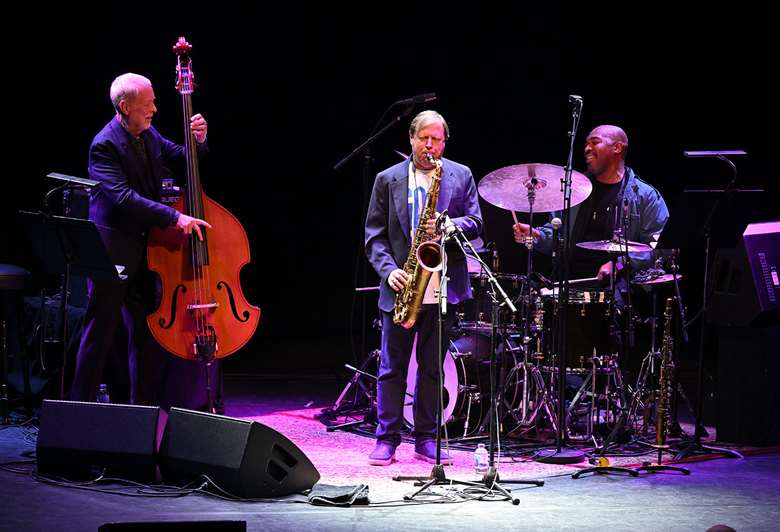Potter/Holland/Harland’s Crosscurrents Trio and Enji form a compelling Barbican double bill
Peter Jones
Monday, November 25, 2024
The power-house trio and rising vocalist made for a thrillingly dynamic double bill of contrasting musical highs


Register now to continue reading

Thank you for visiting Jazzwise.co.uk. Sign up for a free account today to enjoy the following benefits:
- Free access to 3 subscriber-only articles per month
- Unlimited access to our news, live reviews and artist pages
- Free email newsletter


